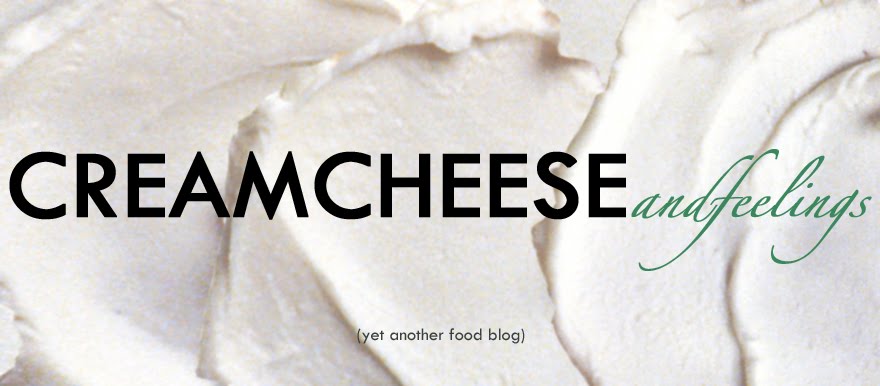Similar to the meatloaf I grew up with, I learned to make mashed potatoes differently than I do now. My mom taught me to "whip" the potatoes, breaking them apart and mixing them with cold milk and margarine with a hand mixer. Then, for several years I was a hand-mash devotee, heating my milk and butter together first then mashing the potatoes into a paradox of chunky smoothness.
Over those years, I've seen and read about using a Potato Ricer
Now, in my trials and errors, there is more to perfect mashed potatoes than ricing.
The first is the potatoes: I use Yukon Gold, which have a suitable starch content for boiling and mashing (whereas common Russets are more suited to baking or frying). The second is making sure the potatoes aren't watery before mashing, which is simply achieved by returning the drained, cooked potatoes to the pot for a few minutes to dry off. To avoid gluey potatoes, ricing significantly helps, as does heating your liquid (whether it's milk, half and half, or cream) before adding it to the potatoes.
Light and creamy mashed potatoes
3 lbs Yukon Gold potatoes
8 oz sour cream
1 cup whole milk or half and half
1/4 cup butter (1/2 a stick or 4 Tbsp), softened
salt and pepper
 Peel potatoes and cut in half, for equal sized pieces to cook evenly. Put in a pot and cover with cold water, and salt the water generously (about 1 Tbsp of salt).
Peel potatoes and cut in half, for equal sized pieces to cook evenly. Put in a pot and cover with cold water, and salt the water generously (about 1 Tbsp of salt).Bring to a boil, and cook until potatoes are tender. Check for doneness by piercing a potato with a knife or fork; they are done when the potato slides off (don't just trust one, check a couple). Drain potatoes, then return to the pot over low heat, letting the extra moisture evaporate (1-3 minutes, stirring occasionally, or until they stop steaming).

Before you begin ricing the potatoes, put milk in a small saucepan and heat over medium-low heat (careful not to let it boil).
Rice the potatoes into the warm pot, or, if you don't have a ricer like me, put them into a metal sieve and push through the holes with a wooden spoon. (If you don't have a ricer OR a metal sieve, and don't want to get one, you can use a hand masher but you won't get the same smooth fluffy results.)
Fold in the softened butter and sour cream. Fold in half of the warm milk, letting the potatoes absorb it, then adding more if needed. Taste, and season with salt and pepper.
*This post contains affiliate links



Never heard of a potato ricer! Interesting.
ReplyDelete